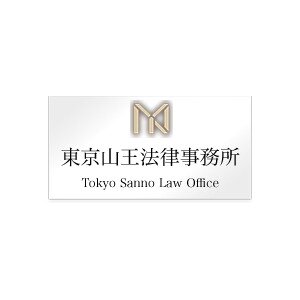Best Employer Lawyers in Japan
Share your needs with us, get contacted by law firms.
Free. Takes 2 min.
Or refine your search by selecting a city:
List of the best lawyers in Japan
About Employer Law in Japan
Employer law in Japan covers a comprehensive range of regulations designed to govern the relationships between employers and employees. The legal framework is complex, encompassing labor standards, employment contracts, workplace discrimination, health and safety regulations, and employee benefits. The primary legislation includes the Labor Standards Act, the Labor Contract Act, and the Equal Employment Opportunity Act. Employers in Japan must ensure compliance with these laws to maintain fair and legal working conditions.
Why You May Need a Lawyer
There are several situations where legal assistance may be necessary for employers in Japan. These include disputes over employment contracts, allegations of unfair dismissal, claims of workplace discrimination or harassment, issues with employee termination, and navigating complex labor laws and regulations. Additionally, employers may require legal counsel to ensure compliance with health and safety regulations, negotiate collective bargaining agreements, or handle disputes before labor tribunals.
Local Laws Overview
Key aspects of local laws relevant to employers in Japan include the Labor Standards Act, which sets minimum employment standards, and the Labor Contract Act, which governs the terms and conditions of employment contracts. The Equal Employment Opportunity Act prohibits discrimination based on gender, race, or disability. Employers must also adhere to health and safety legislation designed to protect workers in the workplace. Additionally, employers are required to provide statutory benefits such as paid leave and social insurance.
Frequently Asked Questions
What is the minimum wage in Japan?
The minimum wage in Japan varies by region and industry but is generally reviewed and adjusted annually. Employers are required by law to pay at least the regional minimum wage.
Are employers required to pay overtime?
Yes, employers in Japan must pay overtime wages for work exceeding the standard hours, typically 40 hours per week, or as specified in the employment contract.
What are the rules concerning termination of employment?
Employers must provide valid and justifiable reasons for termination and may need to give advance notice or compensation in lieu of notice, respecting due process and labor laws.
Can an employer impose non-compete clauses in Japan?
Non-compete clauses are enforceable under Japanese law to a certain extent, but they must be reasonable in scope, duration, and geographical restriction.
How does Japan address workplace harassment?
Workplace harassment, including sexual harassment and power harassment, is prohibited under Japanese law. Employers are required to implement measures to prevent harassment and provide recourse for affected employees.
What are the health and safety requirements in Japanese workplaces?
Employers must comply with the Industrial Safety and Health Act, which mandates the creation of a safe working environment through risk assessments, safety training, and provision of necessary safety equipment.
How are employment disputes resolved in Japan?
Employment disputes in Japan can be resolved through labor tribunals, court litigation, or alternative dispute resolution mechanisms such as mediation or arbitration.
What is the role of labor unions in Japan?
Labor unions in Japan play a significant role in representing workers' interests, negotiating collective agreements, and participating in labor-management consultation systems.
What are the employee benefits mandated by law in Japan?
Legal employee benefits in Japan include social insurance, medical insurance, pension contributions, and paid leave entitlements such as annual leave, sick leave, and maternity/paternity leave.
Are employers obligated to provide written employment contracts?
Yes, employers must provide written terms of employment, detailing key aspects such as wages, working hours, and conditions, as mandated by the Labor Contract Act.
Additional Resources
For more information, consider contacting the following resources:
- Ministry of Health, Labour and Welfare - Provides guidelines and information on labor laws and standards.
- Japan Federation of Bar Associations - Offers lawyer referral services and legal advice.
- Local Labor Bureaus - Assist with resolving labor disputes and understanding compliance requirements.
- Japanese Trade Union Confederation - Offers support for both employers and employees regarding labor issues.
Next Steps
If you need legal assistance regarding employer-related issues in Japan, consider the following steps:
- Identify and document the specific issue or dispute you are facing.
- Consult with a licensed attorney specialized in Japan’s labor and employment law.
- Gather all necessary documentation, such as employment contracts, correspondence, and any relevant records.
- Discuss your options with legal counsel, including potential resolutions and the implications of your case.
- Explore alternative dispute resolution options if applicable, such as mediation or arbitration, before pursuing litigation.
Lawzana helps you find the best lawyers and law firms in Japan through a curated and pre-screened list of qualified legal professionals. Our platform offers rankings and detailed profiles of attorneys and law firms, allowing you to compare based on practice areas, including Employer, experience, and client feedback.
Each profile includes a description of the firm's areas of practice, client reviews, team members and partners, year of establishment, spoken languages, office locations, contact information, social media presence, and any published articles or resources. Most firms on our platform speak English and are experienced in both local and international legal matters.
Get a quote from top-rated law firms in Japan — quickly, securely, and without unnecessary hassle.
Disclaimer:
The information provided on this page is for general informational purposes only and does not constitute legal advice. While we strive to ensure the accuracy and relevance of the content, legal information may change over time, and interpretations of the law can vary. You should always consult with a qualified legal professional for advice specific to your situation.
We disclaim all liability for actions taken or not taken based on the content of this page. If you believe any information is incorrect or outdated, please contact us, and we will review and update it where appropriate.
Browse employer law firms by city in Japan
Refine your search by selecting a city.















